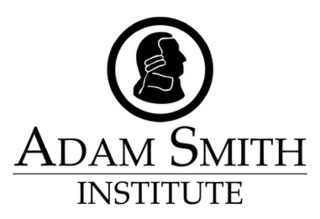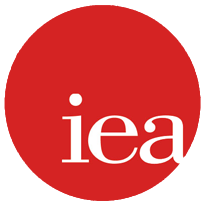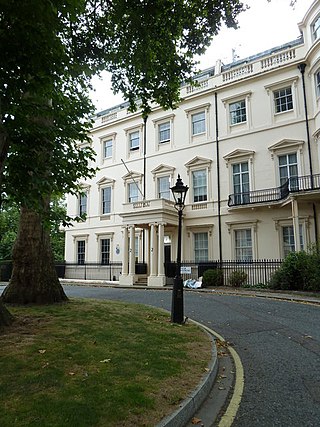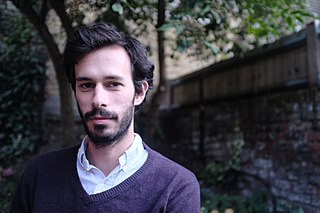
A think tank, or policy institute, is a research institute that performs research and advocacy concerning topics such as social policy, political strategy, economics, military, technology, and culture. Most think tanks are non-governmental organizations, but some are semi-autonomous agencies within government, and some are associated with particular political parties, businesses or the military. Think tanks are often funded by individual donations, with many also accepting government grants.

The International Institute for Strategic Studies (IISS) is an international research institute or think tank focusing on defence and security issues. Since 1997, its headquarters have been at Arundel House in London. It has offices on four continents, producing data and research on questions of defence, security and global affairs, publishing publications and online analysis, and convening major security summits. The Guardian newspaper has described the IISS as ‘one of the world’s leading security think tanks.’

The Institute for Public Policy Research (IPPR) is a progressive think tank based in London. It was founded in 1988 by Lord Hollick and Lord Eatwell, and is an independent registered charity. The think tank aims to maintain the momentum of progressive thought in the United Kingdom through well-researched and clearly argued policy analysis, reports, and publications; as well as a high media profile.

The Centre for Policy Studies (CPS) is a centre-right think tank and advocacy group in the United Kingdom. Its goal is to promote coherent and practical policies based on its founding principles of: free markets, "small state," low tax, national independence, self determination and responsibility. While being independent, the centre has historical links to the Conservative Party.

The Adam Smith Institute (ASI) is a UK-based neoliberal think tank and lobbying group, named after Adam Smith, a Scottish moral philosopher and classical economist. The Institute advocates free market and classical liberal ideas, primarily via the formation of policy options with regard to public choice theory, which political decision makers seek to develop upon. ASI President Madsen Pirie has sought to describe the activity of the organisation as "[w]e propose things which people regard as being on the edge of lunacy. The next thing you know, they're on the edge of policy".

The Institute of Economic Affairs (IEA) is a right-wing, free market think tank registered as a UK charity. Associated with the New Right, the IEA describes itself as an "educational research institute" and says that it seeks to "further the dissemination of free-market thinking" by "analysing and expounding the role of markets in solving economic and social problems". The IEA is the oldest free market think-tank in the UK and was established to promote free-market responses to economic challenges by targeting influential academics and journalists, as well as students, in order to propagate these ideas widely. Adopting as its credo FA Hayek's view that "yesterday's dissent becomes today's consensus," the IEA says that it prioritises producing work with a focus on economic insights over partisan politics.

The Institute for Fiscal Studies (IFS) is an independent economic research institute based in London, United Kingdom, which specialises in UK taxation and public policy. It produces both academic and policy-related findings.
The Social Market Foundation (SMF) is an independent British political public policy think-tank based in Westminster, London. It is one of the 'Top 12 Think Tanks in Britain' and was named 'UK Think Tank of the Year' by Prospect in 2012. Its purpose is to "advance the education of the public in the economic, social and political sciences" and to "champion ideas that marry a pro-market orientation with concern for social justice". Policy ideas are based on the concept of the social market economy.

The Reform Research Trust is a think tank which publishes its own research and also publishes papers from external authors. It was founded by Nick Herbert and Andrew Haldenby.

Sir Geoffrey John Mulgan CBE is Professor of Collective Intelligence, Public Policy and Social Innovation at University College London (UCL). From 2011 to 2019 he was chief executive of the National Endowment for Science Technology and the Arts (NESTA) and visiting professor at University College London, the London School of Economics, and the University of Melbourne.

Green Alliance is a charity and independent think tank based in central London, United Kingdom (UK).

Katharine Anne Ussher is a British economist, public policy research professional and former politician. In November 2023 she moved from being chief economist at the Institute of Directors to Managing Director, Group Head of Policy Development at Barclays. She was previously a Labour Party MP and Treasury minister, and later Chief Executive of the Demos think tank. She was a Non Executive Director with the UK subsidiary of the fintech Revolut from 2020-23, and is a current NED at the local authority pension pooling company, London CIV. In 2023 she was elected a Fellow of the Academy of Social Sciences.

The Centre for Social Justice (CSJ) is an independent centre-right think tank based in the United Kingdom, co-founded in 2004 by Iain Duncan Smith, Tim Montgomerie, Mark Florman and Philippa Stroud.
Policy Exchange is a British conservative think tank based in London. In 2007 it was described in The Daily Telegraph as "the largest, but also the most influential think tank on the right". Policy Exchange is a registered charity, It was founded in 2002 by the Conservative MPs Francis Maude and Archie Norman, and Nick Boles, who later also became a Tory MP.
Civitas: The Institute for the Study of Civil Society is a British think tank working on issues related to democracy and social policy. It was founded by David George Green.

The TaxPayers' Alliance (TPA) is a pressure group in the United Kingdom which was formed in 2004 to campaign for a low-tax society. The group had about 18,000 registered supporters as of 2008 and claimed to have 55,000 by September 2010. However, it has been suggested that a vast majority of these supporters – who do not contribute financially or engage in campaigning – were simply signed up to a mailing list.

The Institute for Government (IfG) is a British independent think tank which aims to improve government effectiveness through research and analysis. Based at 2 Carlton Gardens in central London and founded as a charity in 2008, it was initially funded with approximately £15 million by the Gatsby Charitable Foundation, at the instigation of Lord Sainsbury.

ResPublica is a British independent public policy think tank, founded in 2009, by Phillip Blond. It describes itself as a multi-disciplinary, non-party political research organisation, whose aim is the creation of bold solutions for enduring socioeconomic problems.

Carl Jack Miller is an author, speaker and researcher at Demos, a think tank based in London, where he co-founded the Centre for the Analysis of Social Media (CASM) in 2012. As of 2019 Miller is also a visiting scholar and research fellow at King's College, London.

55 Tufton Street is a four-storey Georgian-era townhouse on historic Tufton Street, in Westminster, London, owned by businessman Richard Smith. Since the 2010s the building has hosted a network of libertarian lobby groups and think tanks related to pro-Brexit, climate science denial and other fossil-fuel lobby groups. Some of the organisations it houses have close connections with those at 57 Tufton Street next door, including the Centre for Policy Studies and CapX.

















